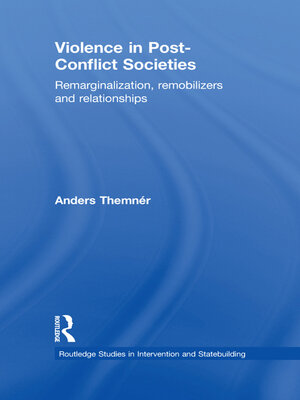Violence in Post-Conflict Societies
ebook ∣ Remarginalization, Remobilizers and Relationships · Routledge Studies in Intervention and Statebuilding
By Anders Themnér

Sign up to save your library
With an OverDrive account, you can save your favorite libraries for at-a-glance information about availability. Find out more about OverDrive accounts.
Find this title in Libby, the library reading app by OverDrive.



Search for a digital library with this title
Title found at these libraries:
| Library Name | Distance |
|---|---|
| Loading... |
This book compares post-civil war societies to look at the presence or absence of organized violence, analysing why some ex-combatants return to organised violence and others do not.
Even though former fighters have been identified as a major source of insecurity, there have been few efforts to systematically examine why some ex-combatants re-engage in organized violence, while others do not. This book compares the presence or absence of organized violence in different ex-combatant communities – former fighters that used to belong to the same armed faction and who share a common, horizontal identity based on shared war-and peacetime experiences – in the Republic of Congo (ex-Cobras, Cocoyes and Ninjas) and Sierra Leone (ex-Armed Forces Revolutionary Council, Civil Defense Force and Revolutionary United Front). The main determinants of ex-combatant violence are whether former fighters have access to elites and to second-tier individuals – such as former mid-level commanders – who can act as intermediaries between the two. By utilizing relationships based on selective incentives and social networks, these two kinds of remobilizers are able to generate the needed enticements and feelings of affinity, trust or fear to convince ex-combatants to resort to arms. These findings demonstrate that the outbreak of ex-combatant violence can only be understood by more clearly incorporating an actor perspective, focusing on three levels of analysis: the elite, midlevel and grass-root.
This book will be of much interest to students of peacebuilding, civil wars, post-conflict reconstruction, war and conflict studies, security studies and IR.







